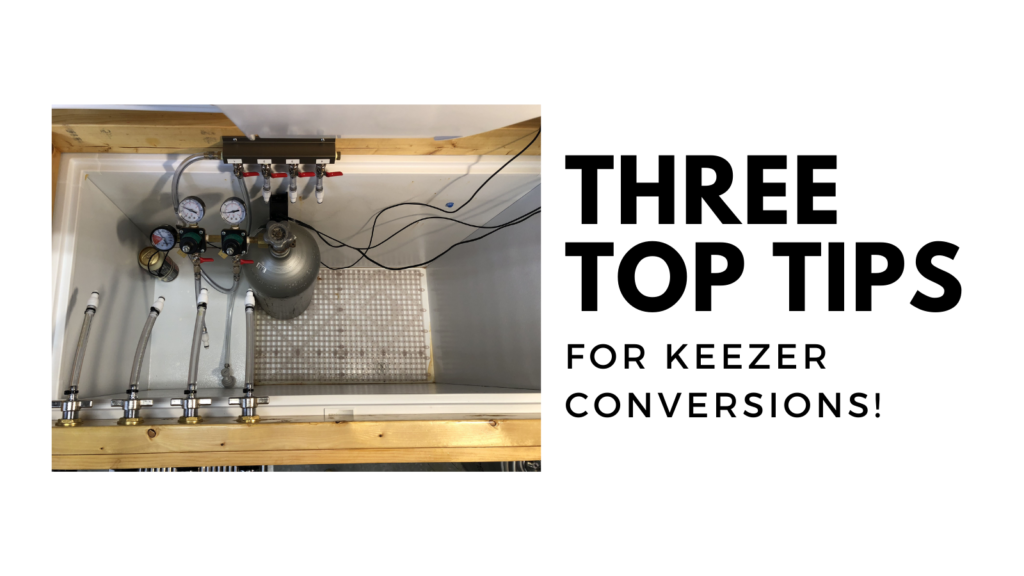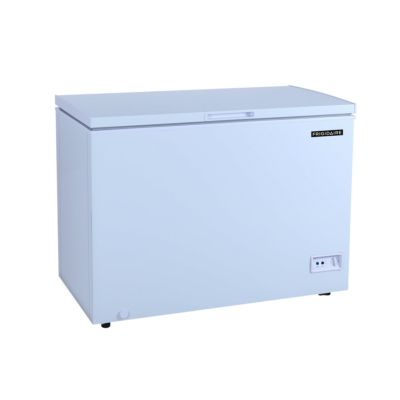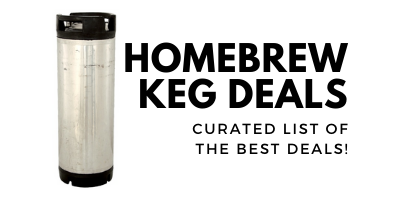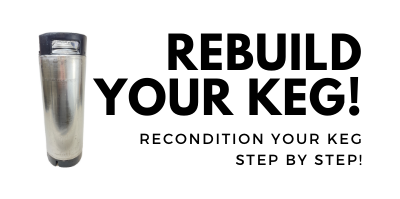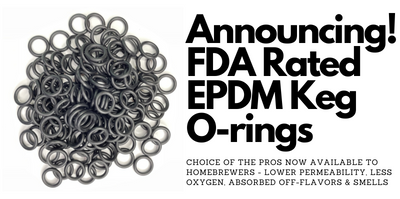
Three Top Tips for Keezer Conversions!
Updated: November 14, 2024
Chest freezers are great. They’re generally well priced and they’re space and energy efficient and can be easily had.
The primary idea with a chest freezer is to… freeze food. Also referred to as Deep Freezes, most models do not go through a defrost cycle. That’s a bummer come manual defrost time but outstanding for energy savings and food preservation.
Limited Time Deal on Chest Freezers:
As of this posting, Wal-Mart has Frigidaire chest freezers on sale. Prices includes free shipping to most US addresses.
Frigidaire 5.0 Cu. ft. Chest Freezer, White – on sale for $145
Frigidaire 7.0 Cu. ft. Chest Freezer, EFRF7003, White – on sale for $174
You could use this to put together a freezer based kegerator/keezer (See: Tips and Gear for your Kegerator) or temperature controlled fermentation chamber.
Side note… Because of the lack of a defrost cycle, chest freezers are great for storing hops – our hop deals roundup
Many people including myself have repurposed chest freezers as kegerators or “keezers”.
What does Keezer mean? Keezer = kegerator + freezer.
To do the conversion you basically add a compatible temp controller – Inkbird deals and reviews – that will allow you to operate a chest freezer at fridge temps. After that add some taps, maybe a collar, some kegs and a CO2 tank and you’re off and going!
The problem: Chest freezers are generally meant to operate at freezing temperatures, not beer serving temps. This causes issues with condensation and airflow. Left unhandled these issues can cause other problems, like sanitation issues.
Through several iterations of my own keezer, I’ve experienced all of these problems. I have a library of tips and resources that specifically apply to serving draft beer, but these are the top three when it comes to keezer conversions.
#1 Handle Condensation
Chest freezers aren’t designed to be operated at refrigerator temps. Depending on your climate this may result to excessive condensation. I had pooling water in my own keezer until I took action.
See: Damp Kegerator? Fix Kegerator Condensation
#2 Improve Airflow
Kegs and tanks sitting flush on the bottom of your keezer provide a place for condensation to (and other things) to live. Adding mats to the bottom of your kegerator improves airflow and helps to keep things dry.
See: Using Interlocking Bar Mats Around Your Home Brewery
# 3 Stabilize Temps & Reduce Foam
Using a cheap recirculating fans keeps things moving, evens out temperatures and helps to reduce foaming.
See: Kegerator Beer Line Temperatures & Reducing Foam with a Recirculating Fan
Bonus Tip: Consider Upgrading to DuoTight
Kegland’s DuoTight Fittings are designed to work with EVABarrier Double Wall Tubing. They offer quick, reliable connections, easy implementation, a variety of fitting options and feature amazing versatility. They’re also, generally speaking, very well priced. DuoTights are push to connect fittings and require no tubing clamps.
duotightreviewConclusions
Chest freezers can be easily converted to kegerators. They’re generally inexpensive, reliable and energy efficient. My top three tips will help your keezer run even better.
Bonus Tip: When to NOT use a chest freezer for your kegerator conversion
If you have back troubles or trouble lifting 50+ lbs, consider a refrigerator instead of a freezer for your kegerator conversion project. Lifting full kegs of beer over a 4 foot wall, can be tough. Fridges or an upright freezer are usually just a few inches off the floor.
Related: Take it Up a Notch! Upgrade Your Kegerator – 6 Improvements!
See: Upgrade Your Kegerator – 6 Improvements!
Keg Deals
kegdealsRebuild Your Kegs
More Homebrew Finds!
- Last 50 Finds!
- Top Deals – a curated list of the best deals
- Homebrew Reviews – one of the largest libraries of homebrew reviews in existence!
- Our Top Posts – tips, how-tos, resources posts and more
- Let’s be Friends!
Recent Deals!
10 Most Recent Homebrew Resource Posts & How-To’s!
We are Homebrew Review HQ! Our 10 Most Recent Reviews
Also: Kegerator Tips & Gear | Keg Repair Part #s | Recent Keg Finds
Our Top Draft Resources!
Check our our Top Draft Related Resources- Commentary: Pin Lock Keg Pricing and Availability
- Check Your CO2 Regulator for Leaks!
- How to get a keg ready for first use? New Keg Cleaning and Prep
- Portable Draft Beer Serving Options!
- Pin Lock Keg Pricing and Availability
- The Most Difficult Spot to Check for CO2 Leaks
- Keg O-Ring Materials Selection! – EPDM, Silicone and Buna-N?
- Why Do I Have Bubbles in My Beer Line? Diagnosing and Fixing Kegerator Foam Problems
- Five Benefits of Using Corny Kegs As Fermenters
- Rebuilding & Reconditioning Homebrew Kegs!
- Food Safe Replacement Keg O-Rings in Bulk
- Hands on Review: Kegland DuoTight Fittings & EVABarrier Tubing!
- Why Won’t My Beer Carbonate? Fixing Draft Beer Carbonation Problems
- What Does a Flow Control Faucet Do?
- Upgrade Your Kegerator – 6 Improvements!
- Serve Homebrew on Any Kegerator & Convert Commercial Kegerator to Homebrew
- Tips and Gear for Growler Filling
- What’s the Difference Between Ball Lock Kegs and Pin Lock Kegs?
- Checking for Draft System CO2 Leaks – Using The Pressure Gauge Method
- Tip: Consider Oetiker Stepless Clamps for Kegerator Gas and Beer Lines
- Hands On Review: Inkbird ITC-308 Dual Stage Temperature Controller +WiFi Version
- Universal Poppets Tips and Tricks!
- Convert Your Mark II Keg & Carboy Washer to a Recirculating Draft Line Cleaning Pump!
- Step by Step: Finding and Fixing Keg CO2 Leaks
- Kegerator Temperature Probe Placement – To Immerse or Not To Immerse? – three tests to determine optimal pla…
- Kegerator Beer Line Temperatures & Reducing Foam with a Recirculating Fan
- Kegging CO2 Use Estimations and Calculations
- Balancing Your Kegerator Draft System
- Building a Simple Ball Lock Draft Line Flushing Setup
- Build a Recirculating Draft Line Cleaning Pump
- Home Brew Keg Roundup – New & Used, 5 and 2.5 Gallon & More!
- Damp Kegerator? Fix Kegerator Condensation
- Homebrew Temp Controller Roundup! – Kegerator and Fermentation – concepts, applications and models
- Bulk Keg Orings and Keg Parts Reference
This post may contain affiliate links. We may make a commission when you use our links. This will never cost you extra. Thank you for supporting Homebrew Finds!
greatdealsPrice, promotions and availability can change quickly. Check the product page for current price, description and availability.
Make sure the components you use are compatible and rated for your intended application. Contact manufacturer with questions about suitability or a specific application. Always read and follow manufacturer directions. tag:lnksfxd top:3keezer #tag:tpr
